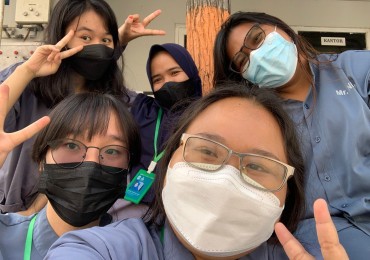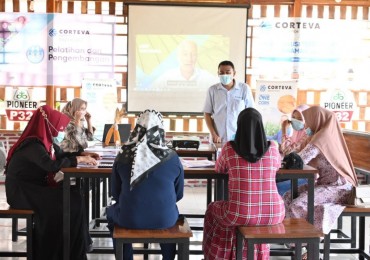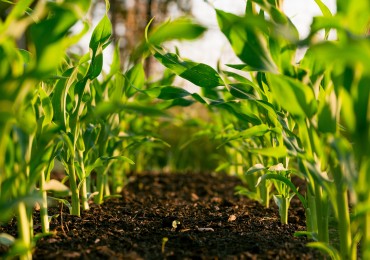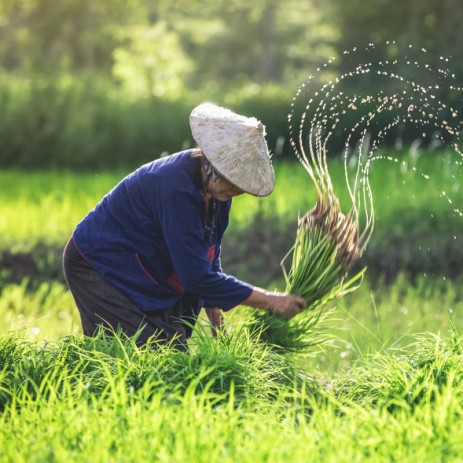news
Adaptation and Mitigation for the Sustainability of the Coffee Industry in Facing Climate Change
30 Nov 2023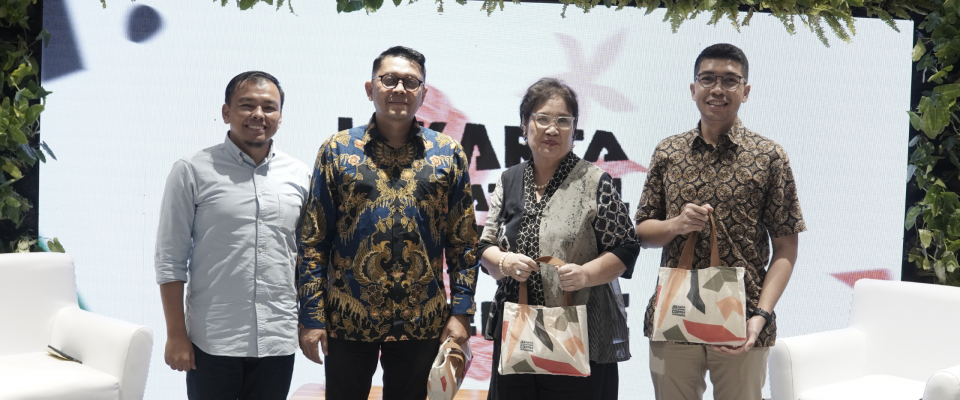
The agricultural sector is one of the sectors massively affected by climate change, as the management and cultivation of agriculture are profoundly influenced by natural conditions. It is essential for farmers and other agriculture enthusiasts to engage in farming activities by adjusting to the current climate conditions.
Coffee farming poses a challenge in efforts to enhance productivity amidst climate change. The diverse flavors of coffee, currently enjoyed by people of all ages, are inseparable from the meticulous processes of planting and processing coffee beans by farmers. In this endeavor, farmers not only care for coffee plants with precision but also manage agricultural outcomes in accordance with Good Agriculture Practices (GAP).
In the quest to enhance the sustainability of the coffee industry amid climate change, the Jakarta Tourism and Creative Economy Office, in collaboration with the Indonesia Gastronomy Network (IGN), organized the Jakarta International Coffee Conference (JICC) at Sarinah, Central Jakarta, from November 17 to 19, 2023. The event received high enthusiasm from participants during its three-day duration.
Edufarmers, a foundation dedicated to the agricultural sector, was present and directly participated as the moderator in a discussion on the impact of climate change on the sustainability of coffee farming, led by Amri Ilmma, COO of Edufarmers. The discussion also featured three other speakers: Heru Prama Yuda (The World Bank), Nuzul Qudri (Regional Project Manager, Asia World Coffee Research), and Amanda Katili (Climate Reality Indonesia Executive Coach).
In addressing climate change, Heru Prama Yuda highlighted the vulnerability of coffee farming to changing weather patterns and intense sunlight. Both factors affect harvest yields and coffee quality, necessitating mitigation and adaptation measures from both farmers and stakeholders to address ongoing climate change.
"The application of Good Agriculture Practices (GAP) is still not widespread, undergoing extensive socialization to increase coffee productivity. Second, management and rejuvenation practices for coffee plants need to be implemented to produce quality coffee beans. Third, farming patterns must be adjusted to conditions, with shade trees protecting coffee plants from extreme weather and wind to ensure that the coffee flower yield is not reduced," he concluded.
Amanda Katili also emphasized that "adaptation and mitigation must go hand in hand to improve coffee sustainability through education, research, increased community awareness, and decision-making. The approach involves empowering the younger generation to participate in coffee farming communities and fostering collaboration with coffee farmers to advance coffee farming and increase economic outcomes," she said.
Meanwhile, Nuzul Qudri stressed the importance of innovation, stating, "Innovations such as the creation of new varieties must be linked to climate conditions to ensure uninterrupted productivity. Newly created varieties need to outperform previous ones with twice the quality. The creation of new varieties focuses solely on improving quality without the need for additional land," he said.
In line with Nuzul Qudri's remarks on creating new solutions to advance coffee farming, Amri Ilmma, as the moderator, added that AI technology and digitization in agriculture can help address climate change issues. The results, such as new varieties or genetics for a plant without harming the environment, represent agricultural innovations capable of enhancing coffee sustainability without environmental damage.
This event is expected to be an educational platform for coffee enthusiasts to enhance the sustainability of the coffee industry for international competitiveness. Despite the ongoing climate change, adaptation and mitigation are crucial to maintaining Indonesia's coffee productivity."
 Back To List
Back To List

